Rebecca Arnold writes: Digital photography has never been so exciting.
I look up from my book to find a young mother pushing her two children toward me and eagerly pointing at the camera beside me. The shy kids obediently pose as I click away, then cover their mouths, giggling, as I show them the images on the camera screen.
All of a sudden I am surrounded by 20 kids who appear to have emerged from the ocean, some naked, some clutching homemade boogie boards, and one with an old, coloured feather duster on his head as a makeshift Mohawk.
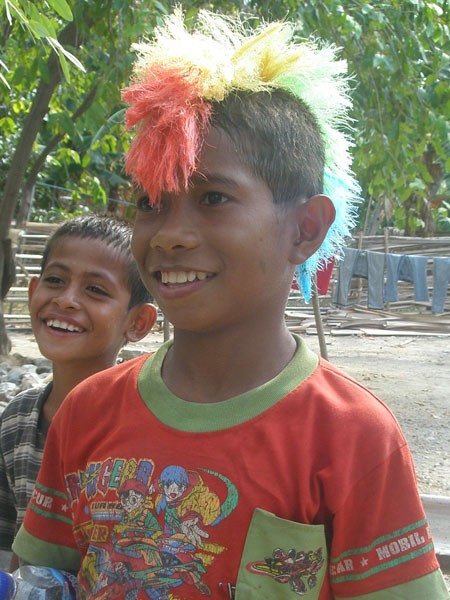
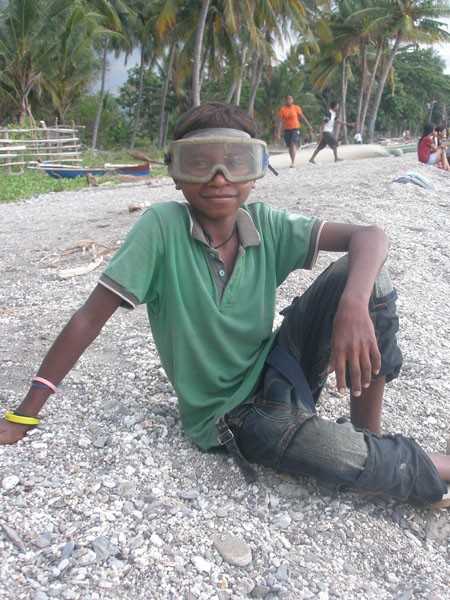
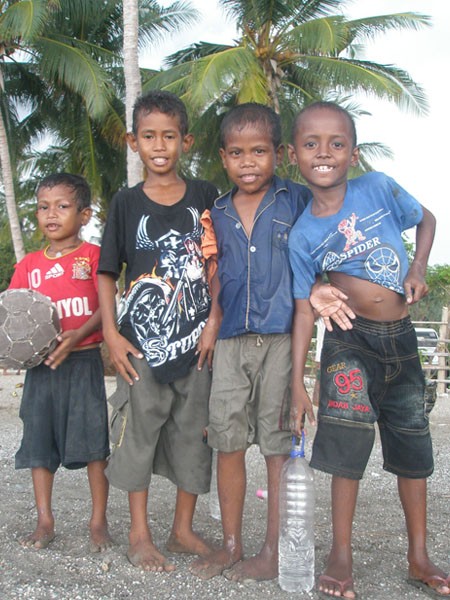
They’re bouncing around in front of the camera, flexing non-existent muscles and pulling cheesy grins, all in an attempt to star in my travel snaps.
It’s not uncommon to find yourself in this position in Timor-Leste (East Timor). It seems that all Timorese people, while extremely shy, are verging on narcissism when it comes to a camera, and love to see their face on the screen.
This openness and curiosity is seen throughout Timor-Leste, and perhaps jars with the perception one might have of a people who have faced persecution and the horrors of violent colonialism for over 200 years.
I visited Timor-Leste to stay with a friend who lives there. Working for a research organisation and also writing her thesis on gender development in emerging countries, she has lived in the country on and off for around three years. Staying with her gave me the opportunity to experience the country almost as an insider, taking advantage of her fluency in Tetum and friendships with many people throughout the small nation.
I spent most of my time wandering around Dili on the back of her motorbike, but also got the chance to take the hair-raising drive up into the mountains to stay in the small village of Lolotoe.
In its dusty simplicity, Dili gives the traveller a sense of going forth where few have gone before. While NGO workers, international police and foreign advisers abound, rarely will you meet a ‘tourist’. Tourism in Timor is still a nascent industry, but no doubt a few seeds were planted following the huge interest in the country after the release of the film Balibo in 2009.
Dili still bears the marks of war. Houses that were burnt during riots in 2006 remain half-crumbling, some riddled with the pock marks of bullet holes.
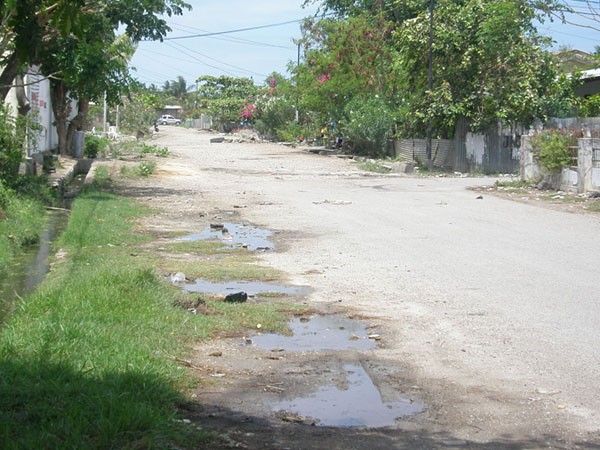
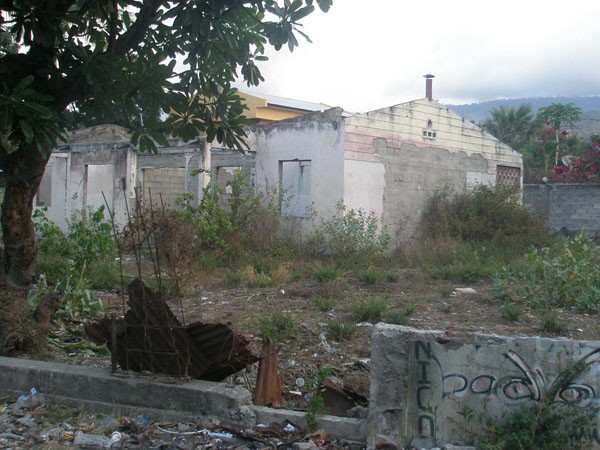
Walking through Dili is certainly an experience. The potholed streets are shared by vehicles of all types and rambling pigs and goats. Before I came, I’d read about the alarming pace of the NGO vehicles and foreign police, and I found it to be true – as they speed past, their tyres kick up dust and small rocks, and I quickly learned that it was always wise to move as close to the kerb (well, at least to where the kerb should be) as possible.
Going a little further out from the city centre we discovered pockets of paradise in the pristine beaches that stretch along Dili’s oceanfront. Here, we were alone but for some Portuguese soldiers taking advantage of their time off to soak up the sun.
Despite the heat, we did drive to one of Dili’s more conspicuous attractions, making our way up the seemingly endless steps to gasp at the view from the massive statue of Christ, a strange gift from the Indonesians, which occupies the hilltop of Cape Fatucama. The walk up to the top of the hill is lined with the 14 Stations of the Cross, and, once at the top, it offers an amazing view over Dili and across to Atauro Island.
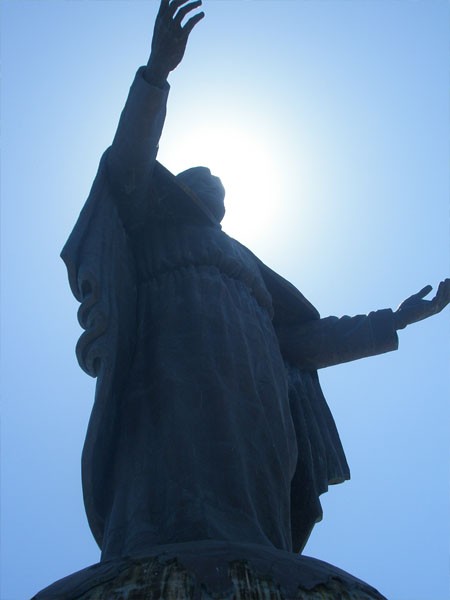
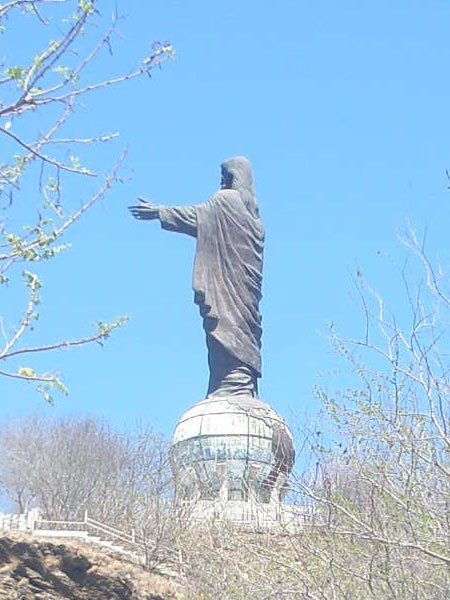
Atauro Island was another highlight of my visit. We joined the masses at the port (where Australian journalist Roger East was killed when the Indonesians invaded in 1975) to catch the ferry across. I’d heard amazing things from my friend about the island, but, alighting from the ferry, I wasn’t overly impressed. Much like Dili, it was hot, dry and dusty. Small herds of goats chewed at small shrubs in the dirt and small, dirty children ran around the roads.
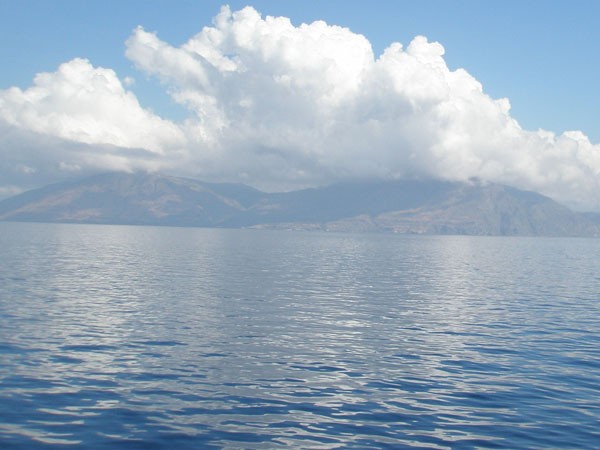
Not knowing where we were going, we chose a direction — right — and walked to see what we could find. We entered the first house we came to, to see whether they could offer any advice on how to fill the next six hours until the ferry returned.
Inside the house — which we discovered was actually a guesthouse — we stumbled upon a fellow Australian, Barry, who, for US$5, fed us the most amazing fresh seafood, chicken dishes and unidentifiable (but delicious!) vegetables, all cooked by his Timorese wife. In between mouthfuls we spoke with Barry and a variety of his guests, most of them doctors and agricultural specialists from NGOs here in Timor to assist with the country’s development.
After second and third helpings of food, Barry offered us the use of one of his huts so we could change to swim. We walked across the white sand — small, perfect grains — to bathe in bath-temperature-water, so clear we could see small fish darting around our ankles.
Running along the beach to catch the ferry back, we mused that it was an unexpectedly wonderful day, and a reminder that not everything can be taken on face value.
Timor-Leste is not for the unadventurous — it has little tourist infrastructure, the language barrier can be a challenge, the US dollar means that it’s expensive when the Aussie dollar’s not doing so well, it’s hot and dirty.
But to experience truly rustic places like Atauro Island, and to see the joy on faces of kids when you show them something as simple as a photo of themselves, well, what an experience.
In the real world Rebecca Arnold is a Melbourne-based PR flack. She’s just spent some time volunteering in South Africa and writes about her travels at Rebecca and the World, where this post first appeared.







Crikey is committed to hosting lively discussions. Help us keep the conversation useful, interesting and welcoming. We aim to publish comments quickly in the interest of promoting robust conversation, but we’re a small team and we deploy filters to protect against legal risk. Occasionally your comment may be held up while we review, but we’re working as fast as we can to keep the conversation rolling.
The Crikey comment section is members-only content. Please subscribe to leave a comment.
The Crikey comment section is members-only content. Please login to leave a comment.